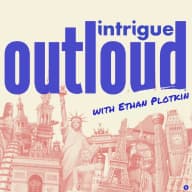As clickbaity as it sounds, we’re not making the above title up.
On Wednesday, China’s policymakers announced they’ve added all sorts of small electronic appliances — microwaves, rice cookers, water purifiers — to a list of consumer products eligible for a subsidised trade-in.
We’re not here to dunk on that idea — the US and others have used similar methods to get folks spending during a downturn. But that brings us to why China is doing this now:
Stay on top of your world from inside your inbox.
Subscribe for free today and receive way much more insights.
Trusted by 160,000+ subscribers
No spam. No noise. Unsubscribe any time.
China’s economy continues to lag. So, microwaves and rice cookers aside, it’s time for another quick look at five big trends now featuring in China’s economy:
- Low growth
President Xi used his New Year’s address to effectively declare victory in achieving last year’s 5% growth target, arguing the economy has now “rebounded and is on an upward trajectory.” But there are real doubts around China’s official figures, and Xi ordered an investigation when prominent local economist Gao Shanwen even hinted at such doubts last month.
So what’s the real growth rate? The boffins at Rhodium, for example, say it’s perhaps as low as 2.4-2.8%. And that’d make sense when you consider China’s struggles with…
- Deflation
Even according to official statistics, China’s consumer prices rose by just 0.2% in 2024 (ditto 2023) — well below the 3% target, and inching lower with each passing month. A thousand PhDs will explain why this is happening, but it’s likely a toxic mix of:
- China’s property sector collapse (burning $18 trillion since 2021 by one estimate)
- A balance sheet recession (China’s households have ~70% of their wealth in that same troubled sector, so are paying off debt rather than spending), leading to
- Years of possible low growth ahead like Japan had (though China’s households have additional reasons to cut spending, including a weaker social safety net).
Meanwhile, producer prices keep sliding down too, which leads us to…
- Bonds
Bond markets are looking wild everywhere, reminding us of that classic Star Wars line: “I have a bad feeling about this”. In the end, Han, Luke, Leia, Lando, Obi-Wan, and Darth were right to be worried (and yes, they all said that line). So what about China’s bonds?
Yields on China’s 10-year government bonds are now at record lows, and getting lower, leaving the biggest gap with (rising) US yields in history. It’s a complex market, but this likely all reflects China’s souring investor sentiment and expectations of future interest rate cuts, pushing locals to scramble for safe-haven options like longer-term bonds.
So China’s central bank tried to calm its bond market last month by [*checks notes*] sternly warning traders against any “aggressive” moves. But then just hours ago, the central bank went a step further by temporarily suspending bond purchases altogether!
It’s likely also an effort to stabilise China’s…
- Currency
The renminbi has just hit a 16-month low, partly due to concerns around Trump 2.0’s tariff plans. And sure, a weaker currency helps China’s exporters (their goods get cheaper), but it also brings its own challenges, including further hosing down local demand, and triggering more resentment in the US and elsewhere around China’s trade practices.
Which leads us to China’s…
- Manufacturing
China’s factory activity expanded for the third straight month in December, though by less than expected, and the longer-term outlook seems tricky for reasons that go well beyond Trump: eg, neighbouring Vietnam just imposed a 97% anti-dumping levy on China’s low-cost wind towers; Chile is now taxing China’s low-cost steel; the EU is taxing China’s low-cost EVs, and so on. That’s because many foreign capitals increasingly see the choice as between tariffing China, or watching their own industrial bases crumble.
And for his part, while there’s plenty of debate, Xi might see the choice as between facing turmoil at home, or keeping his people employed then dumping the surplus abroad. For Xi, the top priority is still security.
So what to do? That’s been the question in Beijing and beyond since China first had its under-whelming post-Covid re-opening.
Anyway, the lunar calendar says 29 January will kick off the year of the snake, a figure associated with wisdom and agility. Maybe we’ll need it.
INTRIGUE’S TAKE
For a while now, much of the world has been urging Xi to announce more stimulus to spark his economy back to life, as he’s done before. But while he hasn’t yet fully hit the gas this time, there’s still been a slow but steady accumulation of supportive measures.
And so with each passing month of disappointing data out of China, the world’s continued calls for more and more stimulus are starting to remind us of Christopher Walken’s calls for more and more cowbell – ie, maybe not the answer after all.






